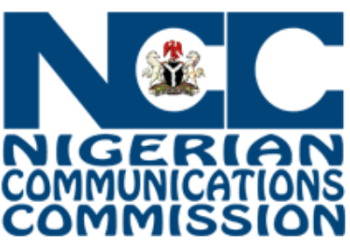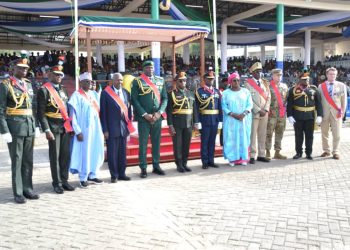By Nkechi Eze
In a renewed effort to tackle corruption and promote transparency in Nigeria’s maritime and blue economy, the Independent Corrupt Practices and Other Related Offences Commission (ICPC) has expressed readiness to collaborate more closely with the Nigerian Shippers’ Council (NSC), pledging strategic support to build institutional capacity and enhance enforcement mechanisms within the sector.
The development came to the fore on Friday when the Executive Secretary and Chief Executive Officer of the Nigerian Shippers’ Council, Barrister Akutah Pius Ukeyima, MON, paid a courtesy visit to the ICPC Chairman, Dr. Musa Adamu Aliyu, SAN, at the Commission’s headquarters in Abuja.
According to an official signed statement by Demola Bakare, spokesperson of the ICPC, the Commission’s Chairman reiterated the agency’s commitment to advancing anti-corruption initiatives that directly impact Nigeria’s economic stability, particularly within the port sector.
“ICPC is willing and ready to work with you to ensure that Nigeria’s economy is in good shape,” Dr. Aliyu affirmed, noting that port operations are critical to trade facilitation and national development.
While addressing the importance of youth inclusion and development in port activities, the ICPC Chairman said: “There are a lot of youths working in the ports. Whatever we can do to ensure they have job opportunities and a future, we should do it.”
Dr. Aliyu emphasized the need to institutionalize anti-corruption efforts through the integration of the National Anti-Corruption Strategy (NACS), urging for deeper inter-agency collaboration among key actors such as the ICPC and the Economic and Financial Crimes Commission (EFCC) to address vulnerabilities in port operations and enhance Nigeria’s standing in the global trade environment.
He also pledged to support the NSC in strengthening its internal systems, improving transparency, and deploying technology to curb corrupt practices. In reviewing past successes, Dr. Aliyu referenced the effectiveness of the Port Standing Task Team (PSTT), a multi-agency platform previously established to sanitize operations at Nigerian ports.
“Based on reports, in 2019, bribery in the ports sector dropped from 266 incidents to 24 incidents in 2020. So we need that sort of collaborative work. We need the team revived. Maybe with the coming of the new act, it will enable us to work together more,” he said.
He described the PSTT as a significant milestone that attracted international recognition, revealing that nations such as Ukraine and Uganda visited Nigeria to understudy its strategies in curbing port-related corruption.
“With the ongoing legal reforms and our mandate to prevent corruption, we can achieve a lot together in terms of accountability and transparency,” Dr. Aliyu stated, adding that both ICPC and NSC are “critical to Nigeria’s economy.”
“We need transparency and accountability in the ports sector. The National Anti-Corruption Strategy encourages agencies to collaborate in ethical orientation and public engagement. There are corruption challenges because of the kind of work you do, and we have the mandate to prevent it. All of us have to put our hands together,” he remarked.
In his response, the Executive Secretary/CEO of the Nigerian Shippers’ Council, Barrister Akutah Pius Ukeyima, MON, reaffirmed the Council’s commitment to eradicating corruption and inefficiencies at Nigeria’s ports, which he described as the nation’s economic lifeline.
“The port sector is the gateway to Nigeria’s economy. We are determined to ensure that it is not just efficient but also transparent and accountable,” Barr. Akutah said.
He proposed a new joint framework for cooperation that would include intelligence exchange, technology deployment, data sharing, and a tailored capacity-building programme for port operators and stakeholders. According to him, such measures would deepen awareness and understanding of anti-corruption policies while driving ethical compliance across board.
“Our collaboration with ICPC is not new, but this renewed commitment is vital as we face emerging challenges in maritime governance and trade facilitation. We must work hand-in-hand to strengthen our enforcement mechanisms and sanitize the ports,” he added.
This high-level engagement marks a significant stride in the ongoing efforts to create a corruption-free maritime environment and to consolidate institutional partnerships that foster economic growth and integrity in Nigeria’s trade corridors.
Both agencies pledged to set up a working group that would immediately commence the review of current operational gaps and propose actionable recommendations for the reactivation of the Port Standing Task Team and other collaborative efforts.
With global trade competitiveness increasingly tied to transparency and regulatory compliance, the ICPC-NSC partnership is expected to serve as a model for inter-agency cooperation aimed at aligning Nigeria’s port systems with international best practices.















